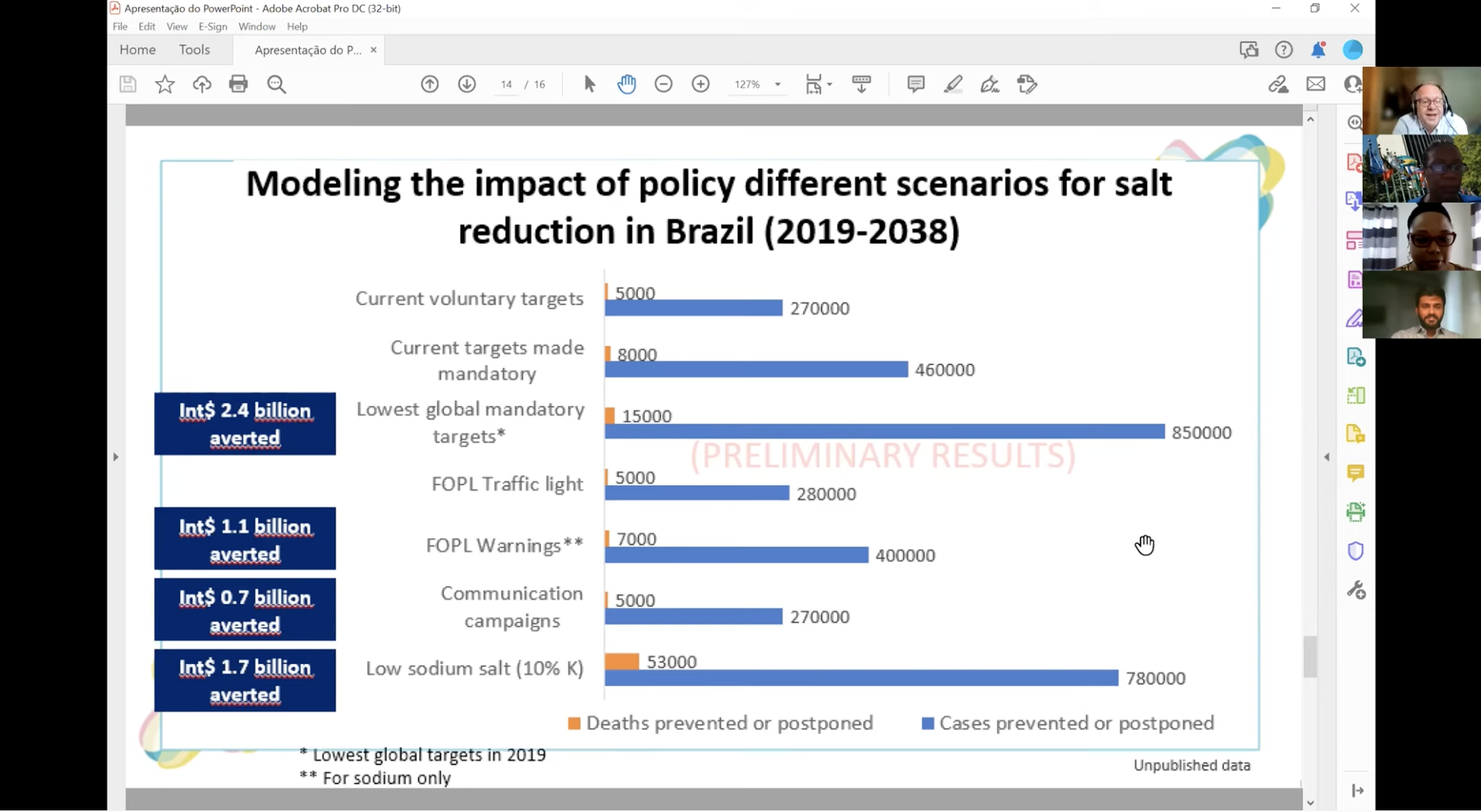
Excessive salt consumption is among one of the main causes of chronic diseases. Usually, excess salt is present in ultra-processed foods, in the form of flavour enhancers and even as preservatives in some products. The problem is so worrying that the World Health Organization (WHO) led a great mobilization among its member countries and established a target of 30% reduction in sodium and salt intake by 2025.
Last Wednesday, March 15, PAHO/WHO hosted an event to discuss advances on strategies to reduce salt consumption in Latin America and the Caribbean. Since 2021, the region has specific targets for reducing sodium consumption. At the event, Brazil and Trinidad and Tobago were invited to present their progress and share experiences. The WFP Centre of Excellence against Hunger Brazil addresses this issue in the Nurture the Future project, as the topic is central to discussions regarding malnutrition in childhood and on how to implement actions on the prevention and care of childhood obesity.

In 2022, the Nurture the Future project plan includes the development of strategies to reduce excessive sodium consumption, including actions aimed at promoting adequate and healthy eating and increasing the supply of healthy foods. In addition, strategies will be developed for the voluntary reduction of sodium levels in processed and ultra-processed foods, improvement in nutritional labelling, in addition to education and awareness activities for consumers, industry, health professionals and other stakeholders.
The Nurture the Future project is the result of a partnership between the Government of Brazil, through the Brazilian Cooperation Agency (ABC) and the Ministry of Health (MS), with the WFP Centre of Excellence Against Hunger Brazil.




